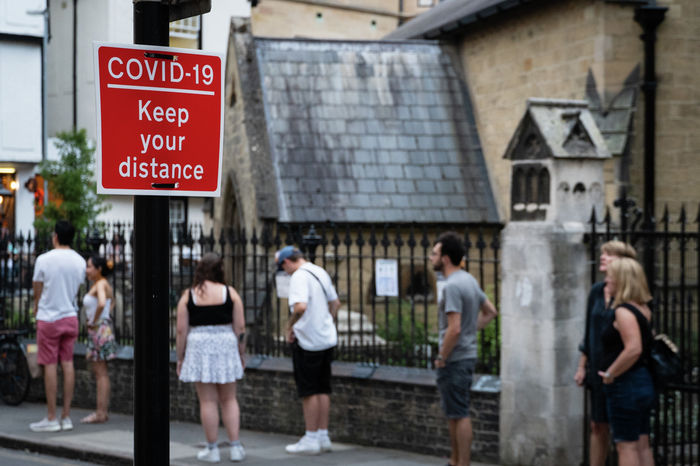Eight times as many antibodies required to fight Delta variant, even among the vaccinated, new research finds
The Delta variant’s ability to evade antibodies may require Covid restrictions to stay in place

New research on the Delta variant of SARS-CoV-2 suggests that its ability to evade antibodies alongside its increased infectivity means that “infection control measures” may need to stay despite the vaccine rollout.
The research was led by a team of international scientists, including a Cambridge professor. It involved the analysis of serum to compare the efficacy of a vaccinated individual’s antibodies in blocking the Alpha and the Delta variants.
Antibodies are a key part of the body’s immune response: the study found that eight times as many antibodies are required to block the Delta variant in vaccinated individuals.
Further analysis of over 100 infected healthcare workers found that the Delta variant was transmitted between vaccinated staff far more than the Alpha variant.
According to the researchers, the Delta variant was better at “breaking into the cells” and replicating once inside them, explaining why it’s so pervasive.
Professor Ravi Gupta, one of the study’s senior authors, from the Cambridge Institute of Therapeutic Immunology and Infectious Disease at the University of Cambridge said: “We’ve shown that the Delta variant is better at replicating and spreading than other commonly observed variants. There’s also evidence that neutralising antibodies produced as a result of previous infection or vaccination are less effective at stopping this variant.
“These factors are likely to have contributed to the devastating epidemic wave in India during the first quarter of 2021, where as many as half of the cases were individuals who had previously been infected with an earlier variant.”
Joint senior author Professor Anurag Agrawal from the CSIR Institute of Genomics and Integrative Biology, Delhi, India commented: “Infection of vaccinated healthcare workers with the Delta variant is a significant problem.” Agrawal stressed that the risk of infection to individuals with “suboptimal immune responses” is increased by the Delta variant, which puts them at risk of “severe disease”.
Agrawal added that “we urgently need to consider ways of boosting vaccine responses against variants among healthcare workers. It also suggests infection control measures will need to continue in the post-vaccine era.”
The Delta variant was first observed in India towards the end of 2020 but has since spread to other countries. The Delta variant accounts for nearly all new COVID-19 infections in the UK.
 Arts / Plays and playing truant: Stephen Fry’s Cambridge25 April 2025
Arts / Plays and playing truant: Stephen Fry’s Cambridge25 April 2025 News / Candidates clash over Chancellorship25 April 2025
News / Candidates clash over Chancellorship25 April 2025 Music / The pipes are calling: the life of a Cambridge Organ Scholar25 April 2025
Music / The pipes are calling: the life of a Cambridge Organ Scholar25 April 2025 Comment / Cambridge builds up the housing crisis25 April 2025
Comment / Cambridge builds up the housing crisis25 April 2025 News / Cambridge Union to host Charlie Kirk and Katie Price28 April 2025
News / Cambridge Union to host Charlie Kirk and Katie Price28 April 2025





